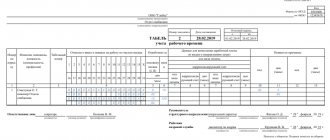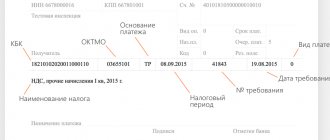Does an employer have the right to withhold money for training?
The employer decides that the citizen needs to undergo training and offers him the following option: an agreement is concluded with the employee that after completing the training and receiving all the necessary documents, he is obliged to work for the company for a certain number of years (usually from 3 to 5 years ) and in return the employer bears all costs. Without thinking twice, the employee agrees to such a lucrative offer, seeing only positive aspects from this in the future. But time passes and the employee has circumstances according to which he must terminate the employment contract with the company without working the agreed period. How to be in this case?
Let's start with the fact that all relationships between the parties regarding training and subsequent work must be reflected in documents: either in an employment contract (agreement to it), or in an apprenticeship contract, or in a separate agreement. Art. speaks about this. 249 Labor Code of the Russian Federation. Without a documentary basis, it will be difficult for an employer to prove that the employee was required to work a certain amount of time.
Next, all accounting documents are used, on the basis of which it can be concluded that the training was paid for by the company. It is important to note here that the recipient of the payment and its purpose must be the same throughout the entire period of study.
The second point that needs to be paid attention to is the coordination of training issues between the parties. We are talking about where exactly the employee will be sent, how much the training costs and how long it will last. Of course, the employer chooses an acceptable option for himself; but if the employee refuses to reimburse expenses in the event of dismissal, arguing that the training conditions were not agreed upon with him, then the court will side with him.
There have been repeated attempts to recognize Art. 249 of the Labor Code of the Russian Federation violating the rights of citizens. However, the Constitutional Court of the Russian Federation emphasized that an employee, by signing a student agreement, undertakes to reimburse the employer for all funds spent on his training. For this purpose, he works a certain amount of time in the organization. This condition is a balance between respecting the interests of the employee and the employer.
The procedure for sending an employee for training is as follows:
- Drawing up a plan for advanced training, which includes the employee and bringing it to the attention of the citizen.
- Determining the educational institution where the training will take place.
- Drawing up a student agreement, agreement or additional. agreements to the employment contract, which reflect information about the terms of training, terms of work after it, etc. The document is drawn up in 2 copies, one for each party.
- Issuance of an order stating that the employee is sent for training. The citizen familiarizes himself with the paper by signing it. The second copy is not given to him.
- Preparation of all necessary personnel documentation, including those related to sending an employee to another city if necessary, notation on the time sheet, etc.
- After receiving a document confirming education or completion of courses, information about this is entered into the work book, if required by law.
Let's consider the circumstances that allow an employer to recover money for training from an employee.
- The citizen resigns. Despite the fact that the legislator does not specify the articles - the grounds for dismissal, we can conclude that we are talking about dismissal of one's own free will. However, in the training agreement, the parties can stipulate that termination of the employment contract for which specific articles may lead to the payment of funds for training. Please note that long vacations or sick leave, regardless of their duration, cannot serve as grounds for recovery.
- The dismissal took place before the period of service established by the apprenticeship contract expired. Since the legislator does not determine the duration of the work period and does not establish criteria for its determination, the parties are given the right to reflect this point in the student agreement. In particular, this period may not always begin from the day when studies are completed and the education document is received. Often, if an employee combines study and work, the period begins from the moment of enrollment in an educational institution.
- The employer paid for the training. At the same time, we are not talking about cases where the employer is obliged to pay for advanced training of employees, which is provided for by law (for example, once every 5 years for medical workers). In cases where the employer wants to recover funds from the employee, the court will side with the employee, since advanced training of employees in this case is one of the conditions for the validity of the license, if for its implementation it is necessary to obtain a special document. In other words - no advanced training - no license.
- Only those expenses that the employer actually incurred for training are subject to reimbursement. At the same time, the legislator does not determine which expenses are classified as such. We believe that this includes not only payment for courses at an educational institution, but also the purchase of tickets, payment for accommodation, payment of travel expenses, etc. In some cases, the employer pays the employee a stipend; in case of early dismissal, it is also subject to compensation. Another problem is that educational institutions’ educational licenses are often revoked. And, despite the fact that a diploma is still issued, it is not of state standard. Based on this, some courts made “concessions” to employees and did not collect tuition fees from them. However, the appellate court overturned such decisions, since there is a fact of training; the presence or absence of a license from an educational institution is not provided for as a mandatory condition of the Labor Code of the Russian Federation; Accordingly, a training fee in the established amount is collected from an employee who quits early.
Let's look at a few examples from judicial practice below.
- L. was fired for absenteeism. 2 years earlier, she was sent to advanced training courses in London at the expense of her employer. According to the apprenticeship agreement concluded between them, she was obliged to work for 3 years in the company. The court sided with the employee, since she did not terminate the contract of her own free will.
- K. received a higher education in the specialty “Engineer” at the expense of the employer. According to the terms of the additional agreement to the contract, he had to work for at least 4 years. However, after 2 years, the employee writes a letter of resignation of his own free will, arguing that he has decided to retire. The court sided with the employer, since the citizen’s right to a long-service pension arose back in 2004, but he continued to work. Therefore, the reason is that retirement is not valid and, accordingly, he was obliged to either work or reimburse all the costs that the employer incurred for his training.
- O. is a railway transport employee who is required to undergo advanced training as required by the legislator. However, after she quit, the employer decided to recover training costs from her, arguing that she had to work for him until the next advanced training. The court sided with O.
For reference! A student agreement should not be confused with an internship agreement. The latter is for the employee to improve his level of qualifications at the enterprise without going to an educational institution.
Recovery of funds spent on training
There is only one legal basis when money can be recovered from an employee - early dismissal without good reason.
Based on this, it is worth understanding which reasons are recognized as valid and which are not. They, in turn, are divided into certain categories. It is worth considering them in more detail.
Own wish
Some good reasons include the following:
- Serious illness or disability.
- The need for long-term recovery or rehabilitation.
- The need to urgently move, for example, following your husband/wife.
Unexcusable reasons include moving to another place of work or study on one’s own initiative, as well as retiring earlier than expected.
Force majeure circumstances
Here, some noteworthy circumstances include:
- loss of the right to hold a position and perform required duties legally;
- arrest in a case that is in no way related to work activity;
- official recognition of a person as disabled;
- return of the employee whom the person receiving education replaced.
Grounds that cannot be valid include disqualification due to the fault of an employee, an official ban on performing duties, or access to state secrets.
Employer's desire
Valid reasons that deserve attention include:
- Forced layoffs at the enterprise.
- Early departure from work at the initiative of the manager.
- Change of owner of the enterprise.
- Violation of certification rules.
Reasons that are not considered valid include forgery, loss of trust, various types of disciplinary violations, and immoral behavior.
Proof of the seriousness of the circumstances that forced the resignation rests with the employee. But the employer retains the right to recognize them or not to recognize them as such. In controversial cases, the case is resolved through the court.
To prevent the possibility of litigation, it is worthwhile to specify in the contract that is drawn up before the study all valid reasons that exempt from reimbursement of money for studies. If in this situation a circumstance not provided for in the agreement arises, you can go to court.
How is the amount to be reimbursed determined?
The legislator in Art. 249 of the Labor Code of the Russian Federation offers the option of collecting money from a resigning employee in proportion to the time he worked. However, this method is not the only one. The parties have the right to agree on a different procedure for compensation. The main condition is that this order be enshrined in the student agreement. Otherwise, it will be difficult for the employer to prove that the parties agreed to cooperate on terms other than those provided for in Article 249 of the Labor Code of the Russian Federation.
It is entirely acceptable for the employer to establish a condition that if the employee does not work the agreed time, he will be obliged to reimburse all costs in full. It must be said that judicial practice in most cases sides with the employer if the employee does not prove that the reason for dismissal is valid.
If we talk about the criterion of valid reasons for dismissal, the legislator avoids this issue. As a rule, this is determined either by the employer or the court. We draw your attention to Art. 80 of the Labor Code of the Russian Federation, which indicates options when an employer must dismiss an employee the next day after writing the last application for dismissal:
- retirement;
- enrollment in an educational institution;
- violation by the employer of the law, which is recorded in the act of the authorized body.
We believe that these circumstances can be considered valid reasons for terminating an employment contract. In addition, you can also add the following to them:
- the need to care for family members;
- the presence of a disease that does not allow you to live in a given region or work at all.
In any case, regardless of the reason for dismissal, if an employee wants to emphasize its respect, he needs to collect a package of documents on the basis of which it will be clear that such circumstances actually exist.
The legislative framework
The labor relations established between employees and their managers when sending the former to receive education are regulated by several legal provisions. Among the most important of them are:
- Chapter 32 of the Labor Code - conclusion of an official student agreement;
- Art. 249 of the Labor Code - the process of reimbursement of the cost of training or necessary advanced training;
- Art. 187 Labor Code - material guarantees to employees who are sent to an educational organization;
- Art. 196 Labor Code – the rights of employees to combine work and education. All conditions must be created for this;
- Federal Law 273 “On Education in the Russian Federation” - establishes the form of training for applicants and licensing the functioning of Russian educational institutions.
There is a definition in modern legislation of the Constitutional Court of the Russian Federation No. 1005-О-О. It is stated here that when training at the expense of the head of the enterprise, the employee is assigned certain obligations. They are associated with working out a pre-agreed period at the enterprise. If this condition is violated for unjustified reasons, the employee must reimburse the expenses.
How is money collected from an employee?
Art. 248 of the Labor Code of the Russian Federation determines that the costs of training a resigned employee will constitute material damage for the employer. Accordingly, this amount cannot be withheld from payments due upon dismissal.
The first thing the employer must do is determine the amount to be reimbursed. This is done either based on the amount of time not worked or on the terms of the student agreement. After this, he is obliged to notify the employee by sending him a letter or handing it over for signature.
The employee can write a statement in which he authorizes the accounting department to deduct the necessary amount from the payments due to him, if it is sufficient. However, a citizen may agree to pay the required amount, but later. In this case, a repayment agreement is drawn up between the parties, which defines the payment schedule.
If within a month after receiving the notification about the need to make payments, the employee does not answer anything, and the amount to be reimbursed exceeds his average monthly earnings, then the employer collects all the necessary documents and goes to court.









